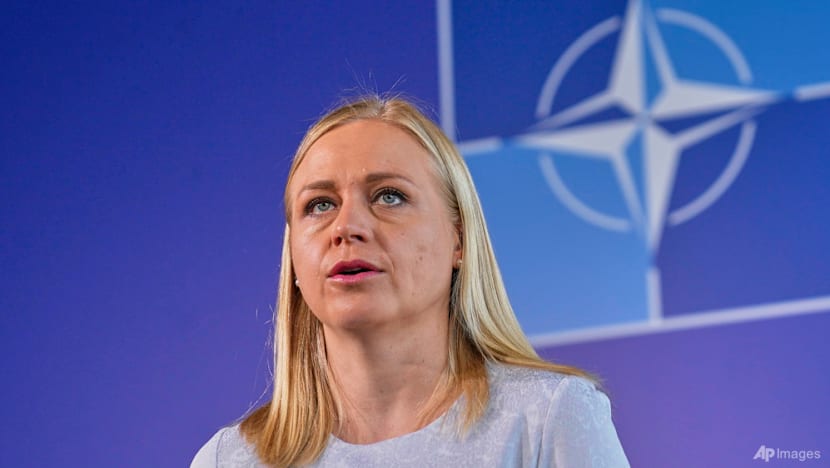More pressure needed to end Russia's war on Ukraine: Finnish FM
Finland's Foreign Minister Elina Valtonen said economic pressure remains one of the most effective tools to weaken Russia's war machine.


This audio is generated by an AI tool.
SINGAPORE: Finland has welcomed the latest sanctions imposed by the United States and the European Union on Russia’s energy sector but says stronger measures are still needed to force Moscow to end its war in Ukraine.
Speaking to CNA on Tuesday (Oct 28) during her visit to Singapore, Finnish Foreign Minister Elina Valtonen said economic pressure remains one of the most effective tools to weaken Russia’s war machine.
“We have to make (Russia’s) economy weaker … in order to force Russia to come to the negotiating table; not only that, but to really agree on a peace deal which lasts, and that is also fair and complies with the United Nations Charter,” she said.
“We see that the (sanctions) already in place do work, they are wearing the Russian economy down. So, more sanctions … more has to be done, we have to be patient.”
Last week, the US announced new sanctions on two of Russia’s largest oil companies, Rosneft and Lukoil, in a major policy shift. EU member states also approved their 19th package of measures that includes a ban on Russian liquefied natural gas (LNG) imports.
Numerous sanctions are already in place against Russia, dealing a blow to its economy. But their overall effectiveness remains limited, as Moscow has adapted through alternative trade routes, domestic production and partnerships with non-Western countries.
Valtonen said it is important to strengthen sanctions to tighten the stranglehold on Moscow’s oil and gas revenues that fund its war efforts, adding that she believes sustained financial pressure will eventually compel the Kremlin to return to peace negotiations.
RAMPING UP DEFENCE
Finland has significantly increased its military budget in recent years. Helsinki is set to boost defence spending to at least 3 per cent of its gross domestic product (GDP) by 2029, and 5 per cent by 2032, up from 2.4 per cent last year.
This aligns with the North Atlantic Treaty Organization’s (NATO) pledge in June to raise defence spending to 5 per cent of member states’ economic output by 2035.
Alongside Poland and the Baltic states, Finland – which shares NATO’s longest border with Russia – is also withdrawing from the 1997 Ottawa Convention, which bans anti-personnel landmines.
All these come amid growing concerns over Russia’s long-term threat to European security.
“We are ramping up our defence and deterrence across Europe and NATO quite massively, and that is certainly in the right direction. Not in order to threaten anybody – that seems to be the Russian narrative – but in order to stay safe,” Valtonen said.
“We have always invested very heavily in our defence and deterrence, and we are happy now that the rest of Europe is doing the same. Together, we are so much stronger.”
Finland’s defence minister Antti Hakkanen said earlier this month that Russia will continue to be a major threat to NATO even after the war in Ukraine, citing a new build-up of Russian forces.
Valtonen noted: ‘Unfortunately, we are witnessing that Russia's aggression (is not limited) to Ukraine … (Moscow) is interested in military power and subjugating other nations.”
She emphasised that Ukraine must not be forced to cede territory to end the war, warning that doing so would undermine the very foundations of international law.
“If we now accept a peace deal which essentially tears apart the territorial integrity and the sovereignty of nations – the key components of the UN Charter and international law – that will have global implications,” she warned.
“Most certainly, small nations can't feel free anymore because then we kind of accept that you can use violence to change borders. Everybody hopes to live in a world where we have peace and respect for each other, and adhere to international law.”
Finland’s stance is shaped by its own history. The Soviet Union invaded Finland in 1939 after Helsinki refused to meet Moscow’s territorial demands. The conflict ended with the Moscow Peace Treaty of 1940, which forced Finland to cede about 10 per cent of its territory.
The Finnish foreign minister is on an official visit to Singapore – the final stop of her Southeast Asia tour, which included a stopover in Jakarta and participation in the ASEAN Summit in Kuala Lumpur, Malaysia.















